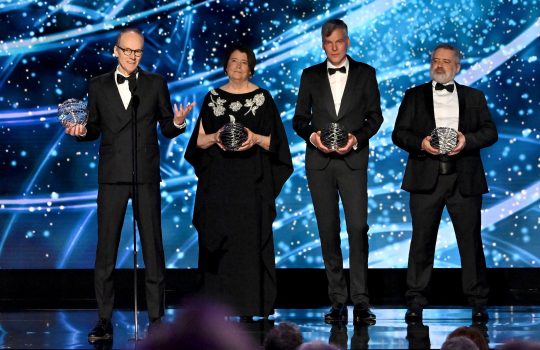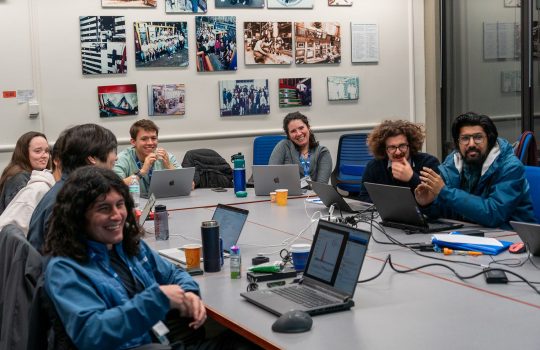Batavia, Ill. – On Tuesday, March 30, physicists at the Large Hadron Collider at CERN in Geneva, Switzerland will make their first attempt to achieve record-breaking particle collisions of 7 trillion electron volts, signifying the start of the research program for the world’s most powerful accelerator.
Reporters are invited to see the record-breaking collisions at the LHC Remote Operations Center at the Department of Energy’s Fermilab, in Batavia, Illinois. While scientists believe that the first 7 TeV collisions are likely to occur on March 30, this achievement could take hours or days.
On the day that the record-breaking collisions occur, live connections between CERN and Fermilab’s LHC Remote Operations Center will follow the action in Switzerland starting at 8:30 a.m. CDT . Reporters will have access to U.S. physicists involved in LHC research. Those physicists will explain the events and their significance for the field of particle physics. Fermilab will also show a live Webcast from CERN until 11:00 a.m. CDT.
If you would like to attend this event at Fermilab, please contact Elizabeth Clements (lizzie@fnal.gov) at 630-399-1777 or Rhianna Wisniewski (rhianna@fnal.gov) at 630-840-6733.
More information about U.S. participation in the LHC and its experiments is available at http://www.uslhc.us .
Read the CERN release:
http://www.interactions.org/cms/?pid=1029232
Fermilab is a Department of Energy national laboratory operated under contract by the Fermi Research Alliance, LLC. The DOE Office of Science is the single largest supporter of basic research in the physical sciences in the nation and helps ensure U.S. world leadership across a broad range of scientific disciplines.



